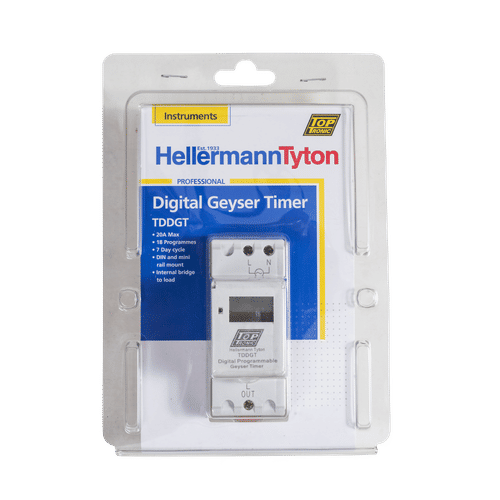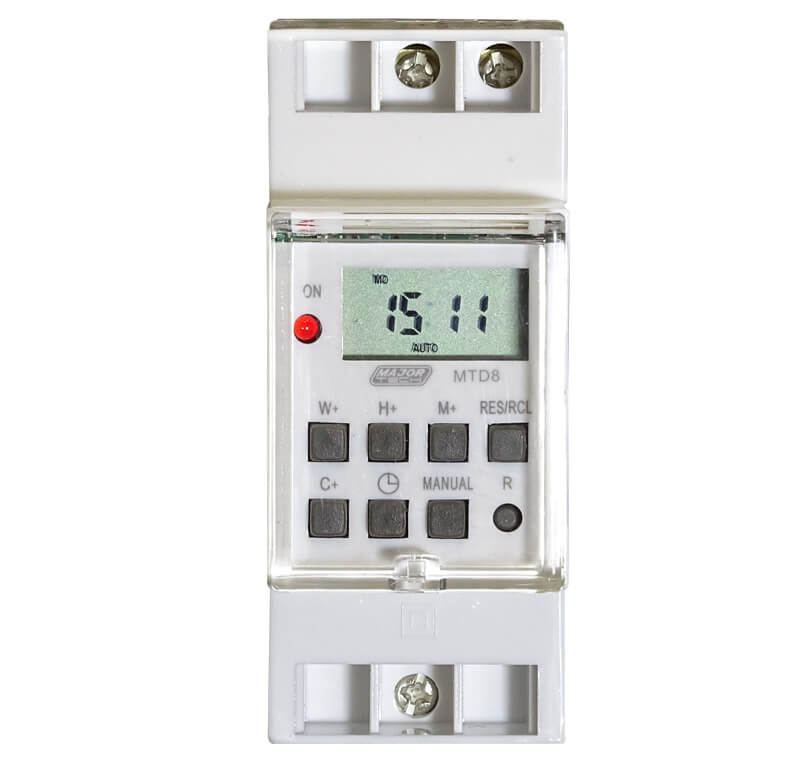Understanding the Common Issues Related To Geyser Timers for Effective Water Heating
The reliable performance of Geyser timers is necessary for maximizing water home heating performance, yet customers often encounter a series of common issues that can compromise performance. Breakdowns, wrong setups, and compatibility obstacles are simply a few of the barriers that can develop, possibly causing boosted energy expenses and decreased reliability. Power supply variances and the requirement for regular upkeep can make complex issues additionally. Comprehending these aspects is essential to guaranteeing that Geyser systems operate at their best, welcoming a more detailed assessment of the services that can address these widespread problems.
Usual Malfunctions

One widespread breakdown is the failing of the timer to start heating cycles. This can occur due to electric concerns, such as a blown fuse or faulty wiring, preventing the timer from obtaining power.
In some instances, the timer may simply be obsoleted or incompatible with the Geyser design, necessitating substitute. Addressing these usual problems without delay not only enhances the life expectancy of the Geyser timer yet also adds to a reputable warm water supply in your home.
Incorrect Timer Settings

Additionally, wrong timer setups can disrupt the availability of hot water when required. An inadequately set up timetable may leave homes without hot water during height use durations, creating inconvenience and aggravation. On the other hand, constant procedure because of misconfigured timers can cause getting too hot, harming the Geyser and raising upkeep prices.
To minimize these concerns, normal checks and updates of timer setups are crucial. Customers should acquaint themselves with their Geyser's home heating demands and change the timer to line up with their certain requirements. Carrying out an easy to use organizing system can additionally improve this process, ensuring optimal efficiency and making the most of energy efficiency. Properly configured timer setups inevitably add to a much more sustainable and cost-effective water home heating remedy.
Compatibility Problems
Compatibility issues can considerably impact the efficiency of Geyser timers, especially when incorporating with various heater or clever home innovations. Lots of Geyser timers are created to deal with certain kinds of hot water heater, such as resistive burner or gas-fired systems. geyser timer. If a timer is not suitable with the heater, it might not function properly, leading to inefficient water home heating or perhaps damage to the system
In addition, as wise home modern technology remains to progress, the integration of Geyser timers with home automation systems can present challenges. Not all Geyser timers supply the exact same level of connectivity, which can impede their capacity to interact successfully with mobile applications or smart centers. Individuals may find themselves not able to manage their Geyser timers remotely or set timetables that align with other wise devices in their home.
Additionally, the compatibility of Geyser timers with existing electrical facilities can likewise be a concern. Variations in voltage scores, wiring criteria, and circuit setups can bring about functional concerns. It is crucial to thoroughly evaluate compatibility with both the heating equipment and the home's electrical system before selecting a geyser timer to ensure optimal efficiency.
Power Supply Troubles
Power supply troubles can severely prevent the capability of Geyser timers, causing undependable procedure and enhanced energy costs. These issues might originate from poor voltage supply, irregular power sources, or defective electrical wiring. A geyser timer requires a secure electric input to work optimally; fluctuations can lead to irregular efficiency or total failure.
In addition, wrong voltage scores can damage the timer, providing it faulty. It is vital to make sure that the Geyser timer is compatible with the electric requirements of the setup site. Additionally, power rises or disruptions can interrupt the timer's programming, bring about ineffective heating cycles and unanticipated functional delays.
In some cases, the positioning of the Geyser timer might likewise add to power supply challenges. If set up too much from the main power source, voltage decline can happen, affecting efficiency. Normal tracking of the electric system and timely recognition of any abnormalities can mitigate these problems. In instances of consistent power supply troubles, seeking advice from a qualified electrical contractor is advisable to make sure that the electric infrastructure properly sustains the Geyser timer's requirements. Correct attention to power supply can improve the performance and longevity of the Geyser timer system.
Maintenance and Troubleshooting
Routine upkeep and troubleshooting are essential for making sure the reliable operation of Geyser timers. Routine checks must consist of inspecting the timer's links and wiring for any signs of wear or damage. Make sure that all electric elements are safe and secure and cost-free from corrosion, as this can affect performance. Routinely clean the timer unit and surrounding areas to prevent dirt buildup, which can hinder its procedure.
If problems occur, begin repairing by resetting the timer to its default setups. Confirm the power supply to guarantee the timer is receiving ample voltage. geyser timer. Seek advice from the producer's manual for details diagnostic Discover More Here steps if the timer falls short to operate as anticipated. Typical problems might include wrong programs or a malfunctioning switch, which can commonly be fixed by reprogramming or replacing the malfunctioning element.
In addition, think about scheduling expert inspections every year to address prospective issues proactively. This technique can extend the life expectancy of the Geyser timer and optimize its performance. By prioritizing maintenance and reliable troubleshooting, users can minimize common issues and make certain consistent efficiency from their Geyser timers.
Conclusion
In verdict, recognizing and dealing with the typical official website concerns linked with Geyser timers is essential for optimizing water heating efficiency. Timer malfunctions, inaccurate setups, compatibility obstacles, and power supply troubles can dramatically impact performance.
The effective performance of Geyser timers is crucial for maximizing water home heating performance, yet individuals commonly encounter a range of common issues that can compromise efficiency. When timers are established improperly, they may activate the Geyser at suboptimal times, resulting in either not enough home heating of water or extreme energy consumption.Compatibility issues can considerably affect the performance of Geyser timers, particularly when incorporating with different heating systems or smart home innovations. Numerous Geyser timers are made to work with specific kinds of water heating units, such as resistive heating components or gas-fired systems.In final thought, acknowledging and attending to the Full Report common concerns linked with Geyser timers is necessary for enhancing water heating performance.